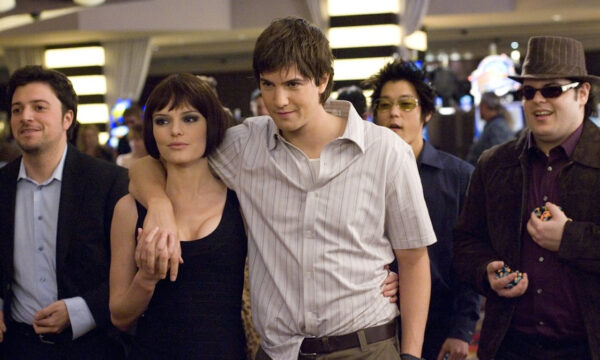First year of parenting: What to feed a baby

It is important to give babies nutritious food for them to grow healthy and nifty – read this article to learn when and what to feed your child.
Everything looks difficult and confusing when you become a parent for the first time. You are suddenly hit with all these new responsibilities and experiences that may be overwhelming and yet be the best thing that has ever happened to you. As new parents, you need to be extra cautious about what you feed your baby.
Babies grow very quickly hence your baby will eat a wide array of meals during the first year. This food will aid in the growth and development of your child. Therefore it is crucial to know how many times you should feed your baby and when and how you will be able to incorporate solid food into the babies’ diet.
Beginning your baby’s eating habits in fine fettle from an early age will help establish healthy eating patterns for the rest of the baby’s life. Your infant’s eating should be based on their developmental age, readiness, and feeding abilities. Here are some suggestions that can be followed to give your baby the proper nutrition they require.
How many times should a baby be fed?
Just like the mother needs to keep fit during pregnancy by eating a proper diet, the baby also needs to be healthy during the first year of growth. This means knowing when and how much to feed a baby to avoid health problems related to over or under eating.
If the baby is only breastfed, it should be done it eight to ten times a day allowing the baby to feed around 15 minutes during each feeding. If the baby is having an organic infant formula, they should be fed ten times a day. It is recommended not to add any solid ingredients to the baby’s formula milk at night.
This takes away from the nutrition that the baby is supposed to get, and can increase the risk of choking. If the baby is having trouble sleeping it’s better to try walking with the baby in the lap while gently rocking him/her. Babies often find peace when they are held close to the mother’s chest, feeling their heartbeat.
What should the baby be fed?
It is best not to introduce any solids until after four – six months of the baby’s birth. Food that can cause allergies like eggs, nuts, eggplant, tomatoes, fish, etc… should be avoided in the baby’s diet until the baby is more than six months old. This will reduce the chances of any idiopathic disease.
0-3 months
In the first three months, the baby obtains all of its nutrition from the mother through breastfeeding. In the first month a baby should be fed ten to 12 times in 24 hours. In the second and third month, the baby should be fed eight to ten times in 24 hours.
If it’s not possible for the baby to be breastfed, it’s possible to use organic infant formula milk. However breast milk is said to be the best source of nutrition for babies for the first six months of their birth. In the first months, baby should be fed two to three ounces after every two or three hours in 24 hours (eight–ten times).
During the second month the baby can be fed two to four ounces every two to four hours per day (seven – eight times in 24 hours). Finally in the third month the baby can be fed four to five ounces per day (six – eight times in 24 hours). Do not feed the baby any other form of liquid or solid food including water and other types of milk.
4-6 months
It is still advised to give infant breast milk up to six months. However, along with that it’s now possible to begin to feed some fortified infant dry cereals to the child. If the baby is breastfed, in the fourth and fifth month the baby should fed six-seven times in 24 hours and in the sixth month the baby should be fed five – six times a day.
If you are using organic infant formula, feed your baby six ounces of the formula every four to six hours per day (six times in 24 hours) in the fourth month. In the fifth month five to six ounces per four – six hours in 24 hours (six times per day). In the sixth month you can feed your baby five to seven ounces every three – four hours per day (five – six times in 24 hours)
If you want to use infant cereal, make sure to prepare it using breast or formula milk, do not use water. It is better to use a spoon to feed your baby instead of a bottle. If your baby can hold his/her head up straight, he/she may be ready for some cereal. You should only use cereal in the bottle if advised by your doctor.
In the fourth and fifth month you can feed the baby one to two tablespoons once or twice a day. In the sixth month you can feed your baby two to four tablespoons twice a day.
7-9 months
The baby has now grown up a little and is ready to eat some mashed solid food. Occasionally you should still breastfeed. Nevertheless, now you can give your baby ¼ cup of mashed vegetables, fruits, puffed baby snacks like flavoured Cheerios or puffed rice (once or twice a day), egg yolk only, and two tablespoons of mashed dry beans or tofu.
If you are breastfeeding you should do it four to six times in the seventh, eighth and ninth month. Formula milk should be fed six to seven ounces per day (four–six times in 24 hours). By this time you can start feeding milk in a bottle or from a cup. Make sure that the baby can sit upright while feeding him solid food.
You can also give your baby some water (preferably boiled and cooled) twice a day (two-four ounces).
10-12 months
During these months, you should breastfeed your baby about four times in 24 hours. If you use formula milk, feed six – seven ounces every four to six hours (three-four times per day). Do not feed a baby formula milk during the night.
You can also give ¼ to ½ cup fortified infant cereal one time per day. Mashed potatoes, chicken, rice and mashed or chopped vegetables can also be fed (quantity ¼ to a third cup). The option of fresh juice is now open as well. You can serve one – two ounces of fresh juice. This can be done once a day and the juice needs to be 100% fresh.
If you have leftovers make sure to refrigerate them as soon as possible. Use containers with lids to store leftover portions. Anything stored without a lid should not be kept for more than two days. Remember to use sippy cups if you want to give fruit juices to your baby. Do not feed them juice before six months.
How to know if a baby is full?
Babies portray certain signs that indicate whether the baby is hungry or full. If your baby is fussy, don’t just assume that they are hungry. This could also be because they need a nappy change or feel tired or they might experience some sort of irritation or pain.
To know if your baby is hungry, keep an eye for these signs:
- Sucking their own hands or fingers.
- Smacking lips.
- Pointing at the feeder’s hand or spoon.
- Grabbing the breast.
It is crucial to catch these signals immediately to avoid your baby being too fussy. Once our baby is full, look for these signs:
- Falling asleep
- Moving or pulling away from breasts or bottle
- Active movement
- Keeping mouth tightly closed
- Pushing the feeders hands away
Things to keep in mind while feeding the baby
It is wise to wait for a short time after introducing your baby to a new food, for any allergic reactions. While introducing solid foods, start with dry food first. It is better to feed small amounts (such as one tea-spoon) at first and then slowly progress to tablespoon.
Do not use salt and sugar until your baby is more than one year’s old. If you are adding new ingredients to your baby’s diet, it is good to introduce a single ingredient at a time. This way you can monitor if your baby develops a rash, has diarrhea or vomiting.
Remember, the babies get their nutrition from the mother in the first few months of their life. Therefore it is important for the mother to also watch her diet.
Proper nutritious diet ensures baby’s adequate growth
Giving a baby the right food at the right time is absolutely vital for the baby’s mental and physical growth. A mother should have proper knowledge about this to be able to provide their child with the best life possible. Happy parenting!
The editorial unit






















Facebook
Twitter
Instagram
YouTube
RSS